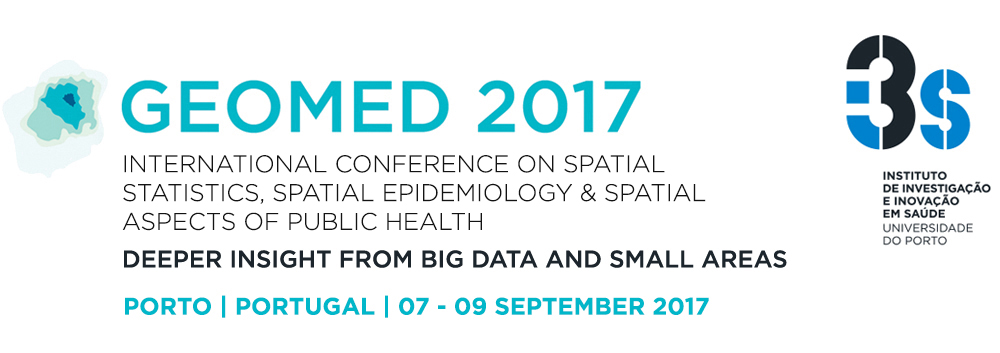
SCIENTIFIC COMMITTEE
 |
Ana Diez RouxAna Diez Roux is Dean and Distinguished University Professor of Epidemiology in Dornsife School of Public Health at Drexel University. |
| She trained as a paediatrician in University of Buenos Aires, Argentina and then completed her public health PhD and MPH at the Johns Hopkins University School of Hygiene and Public Health. Her research interests include social epidemiology and health disparities, environmental health effects and urban health and her focuses on study the social determinants of population health and neighbouring health effects has been an influence in the policy debate on population health and its determinants. Besides being an elected member of the American Epidemiological Society and the Academy of Behavioural Medicine Research she was awarded the Wade Frost Award for her contributes to public health by the American Public health Association. | |
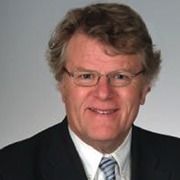 |
Andrew LawsonAndrew Lawson is a Distinguished Professor and Vice Chair for Research at the Department of Public Health, University of South Carolina. |
| He has a background in Geography (1973), Quantitative Methods (1975) and Environmental Science (1986) and a PhD in Statistics (1990). His research interests are manly in the area of spatial and environmental statistics particularly spatio-environmental epidemiology, which include disease mapping. He has published several papers in leading journals and books on spatial statistics. He is a WHO advisor in Disease Mapping and Risk Assessment and an editor- in- chief of Spatial and Spatio-temporal Epidemiology journal. | |
 |
Annibale BiggeriAnnibale Biggeri is a statistics Professor at the Surgery and Translational Medicine Department, University of Florence. He is an MD and a MS on both Public Health and Medical Statistics. |
| He has several publications in the areas of biostatistics and epidemiology and has participated as editor of several journals and books. He is the director of the Biostatistics Operative Unit of the Istituto per lo Studio e la Prevenzione Oncologica. | |
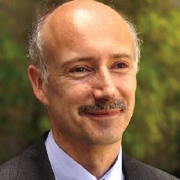 |
David MartinDave Martin is currently Professor of Geography. He has been a member of staff in Geography and Environment at the University of Southampton since 1992. |
| He is the leader of the Population, Health and Wellbeing research group and served as Head of Department from 2000 - 03. He was Coordinator of ESRC's Census Programme from 2002 - 12 and is currently involved in the leadership of three major ESRC initiatives: the UK Data Service, the Administrative Data Research Centre for England and the National Centre for Research Methods. He is also a member of ESRC Council. | |
 |
Denisa MendonçaDenisa Mendonça was graduated in Applied Mathematics, Faculty of Sciences, University of Porto (1976). She joined the Institute of Biomedical Sciences Abel Salazar, University of Porto (1977). |
| Completed her PhD in Biostatistics, Faculty of Sciences University of Exeter, UK (1987). In 1991 she became Associate Professor and in 2006 a member of the Board of Directors of the Institute of Public Health, University of Porto-ISPUP. She was a member of the Scientific Committee of the Master in Public Health, UP and has taught a wide variety of general and specialised topics in Biostatistics at Under Graduate and Post Graduate level. Currently, she conducts research at the Institute of Public Health (Department of Biostatistics/ Biostatistics and Health Metrics Group, EPIUnit) and at the Institute of Biomedical Sciences Abel Salazar involved in PhD project supervision (Applied Math, Biomedical Sciences, Medical Sciences and Nursing Sciences). Her research interests are in applied statistical modelling (particularly: spatial statistics). | |
 |
Duncan LeeDuncan Lee has a PhD in biostatistics and became a lecturer in statistics at the University of Glasgow in 2007. |
| His research interests are in developing novel Bayesian spatio-temporal models to address a wide range of problems, including estimating the impact of long-term exposure to air pollution, modelling spatio-temporal patterns in disease risk, developing freely available software for spatial (CARBayes) and spatio-temporal (CARBayesST) areal unit modelling in R, and quantifying urban segregation. He is also associate editor for the Journal of the Royal Statistical Society Series C and reviewer for many leading statistical journals. | |
 |
Emanuela DreassiEmanuela Dreassi graduated in Statistics from the University of Siena and after completed her PhD in Applied Statistics from the University of Florence. |
| She is currently an associate professor in Statistics since 2011 at University of Florence. Her interests regard hierarchical bayesian models and spatial statistics with special focuses in methodological advances concerning the specification and estimation of models in complex frameworks. She has publish numerous papers in leading journals and her latest investigations centers on methods for robust analysis on small area estimation, compatibility for conditional distributions defined on spatial analysis and missing data problems. | |
 |
Jamie PierceJamie Pearce is Professor of Health Geography at the University of Edinburgh where he is co-Director of the Centre for Research on Environment Society and Health (CRESH). |
| Until recently (January 2016), he was Head of the Institute of Geography and Lived Environment. Previously he was a member of academic staff at the University of Canterbury, New Zealand where was founding Director of the GeoHealth Laboratory. He is Editor-in-Chief of the international journal Health and Place. Professor Pearce’s has published over 100 books, academic papers, and book chapters. He has secured over £15 million in research funding from a range of UK, EU and overseas funding bodies including an ongoing European Research Council grant examining how changes in local environments influence health and wellbeing. His research seeks to understand various social, political and environmental mechanisms operating at a range of geographical scales that establish and perpetuate spatial inequalities in health. Working at the intersection of human geography, public health and epidemiology, he has particular interests in health related behaviours (e.g. smoking, nutrition, physical activity and obesity), environmental justice and health (e.g. air pollution and multiple environmental deprivation), and macro-level health-related processes (e.g. social and economic inequality). | |
 |
Maria de Fátima PinaMaria de Fátima de Pina graduated in Cartographic Engineering, in 1985, in the State University of Rio de Janeiro. |
| She concluded the Master´s in Systems and Computers (1994) in the Militar Institute of Engineering, in Rio de Janeiro, and the PhD in Biomedical Engineering (2001), in the Federal University of Rio de Janeiro. Since 1994 she is researcher of the Oswaldo Cruz Foundation, a teaching and research institute of the Health Ministry of Brazil. In 2004 she became researcher at the Biomedical Engineering Institute – INEB, of Porto University, where coordinates the research group of GeoEpidemiology. Since 2006 she is Associate Professor of the Medical School of Porto University, in the discipline of Epidemiology. Since 2015 she is Adjunct Professor in the Faculty of Engineering in the State University of Rio de Janeiro. Her main research interests are health inequalities and ageing of population. | |
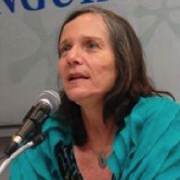 |
Marília Sá CarvalhoMarilia Sá Carvalho is a Brazilian senior researcher working at Oswaldo Cruz Foundation. |
| She graduated in medicine at the Federal University of Rio de Janeiro (1979), has a Master in Public Health from the Oswaldo Cruz Foundation (1990), PhD in Biomedical Engineering from the Federal University of Rio de Janeiro (1997). Her main focus for some years has been on statistical models applied to epidemiology and public health problems, therefore she has published extensively on both infectious and chronic health conditions. Her main research interests now are in environmental epidemiology. She is involved in some of the studies about the recently emerged Zika virus. She is currently editor in-chief of Cadernos de Saúde Pública and associate editor of PLOS Neglected Tropical Diseases. | |
 |
Renato AssunçãoRenato Assunção is Professor in the Department of Computer Science, Universidade Federal de Minas Gerais (UFMG) located in Belo Horizonte, Brazil, since September 2011. |
| He received his Ph.D. in Statistics in 1994 from the University of Washington, Seattle, USA, having Peter Guttorp as advisor. From 1994 to 2011, he worked in the Department of Statistics, UFMG. He prefers to work in applied problems where the stochastic nature of the problem requires probabilistic and statistical modelling. His main application areas have been epidemiology social issues, actuarial risk, and demographic analysis. Due to his recent move to the computer science department, He has been adding new application areas to his work. This interdisciplinary work in turn shape his methodological research in statistics and machine learning. His current research is focused on the development of new algorithms and statistical methods to analyse spatial and space-time data. He is primarily concerned with the spatial analysis of risk appearing in many fields such as epidemiological surveillance, geosensor networks, environmental problems, marketing, spatially variable risk spatially variable, among many others. The computer revolution, still going on, have made it possible to manage huge space-time databases. The extraction of interesting patterns from these massive databases create new, challenging, and interesting problems that require creative algorithmic, statistical and probabilistic solutions. | |
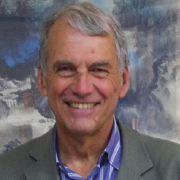 |
Robert HainingRobert Haining retired as Professor of Human Geography at the University of Cambridge in September 2015. He has long-standing research interests in the quantitative analysis of geographical data. |
| He has authored or co-authored over 150 articles and has published two books with Cambridge University Press: Spatial Data Analysis in the Social and Environmental Sciences (1990) and Spatial Data Analysis: Theory and Practice (2003). These books have provided an overview of the challenges facing those working with spatial data including: what it means to “think spatially”; problems of data collection and spatial representation; spatial sampling; exploratory data analysis; and relevant areas of statistical theory for small area estimation and hypothesis testing. One of his primary areas of applied interest includes the geography of health. He has worked in collaboration with colleagues at the University of Sheffield on evaluating the impact of air pollution on health status using small area statistics. The growing availability of small area statistics has been made possible by the digital revolution, the development of Geographical Information Systems (GISs) together with organizational changes that have made the collection of geocoded data by many public and private agencies today a matter of routine. But small area statistics raise many challenges for statistical analysis and the drawing out of robust conclusions from what is often “noisy” small area data. In recent years he has had the opportunity to work on the analysis of crime data in collaboration with various police forces in England and Wales and with Home office funding. Most recently, he and colleagues have worked on the development of new methods for evaluating the effectiveness of small area targeted police interventions. He has taught courses on spatial data analysis and spatial econometrics at the undergraduate and graduate levels both at Cambridge and at other universities around the world. | |
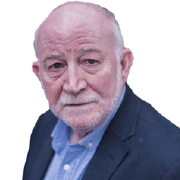 |
Trevor BaileyTrevor Bailey is Professor of Applied and Computational Statistics at the University of Exeter, UK. |
| His research interests are in spatial statistics (particularly: spatial epidemiology, spatial modelling, multivariate spatial methods) and also in applied statistical modelling more generally. Much of his research has been collaborative involving academics and professionals from a variety of different fields including medicine, public health, geography, computer science, commercial organizations and government agencies. He is a Fellow of the Royal Statistical Society and of the Higher Education Academy and a Chartered Statistician. | |
 |
Peter DigglePeter Diggle was a student at the universities of Edinburgh, Liverpool and Oxford. |
| He began his career in 1974 as a lecturer in statistics at the University of Newcastle upon Tyne and was promoted to Reader in 1983. A sabbatical at the Swedish Royal College of Forestry gave him his first exposure to real scientific data and problems, prompting a move to Commonwealth Scientific and Industrial Research Organisation (CSIRO), Australia. After five years with CSIRO, where he was Senior, then Principal, then Chief Research Scientist and Chief of the Division of Mathematics and Statistics, he returned to the UK in 1988, to chair at Lancaster University. Peter Diggle is currently an Engineering and Physical Sciences Research Council (EPSRC) Senior Fellow, leading a research programme in Spatial and Longitudinal Data Analysis at the University of Lancaster. Current methodological themes include: geostatistical analysis; spatial and spatio-temporal point processes; joint modelling of repeated measurement and time-to-event outcomes in longitudinal studies. Current areas of application include: real-time disease surveillance; environmental exposure measurement; tropical disease prevalence mapping. Diggle is founding co-editor of the journal "Biostatistics" and a trustee for the Biometrika Trust. | |
Address: Rua Alfredo Allen, 208 | 4200-135 Porto, Portugal
Phone: +351 220 408 800 | Email: rita.matos@i3s.up.pt